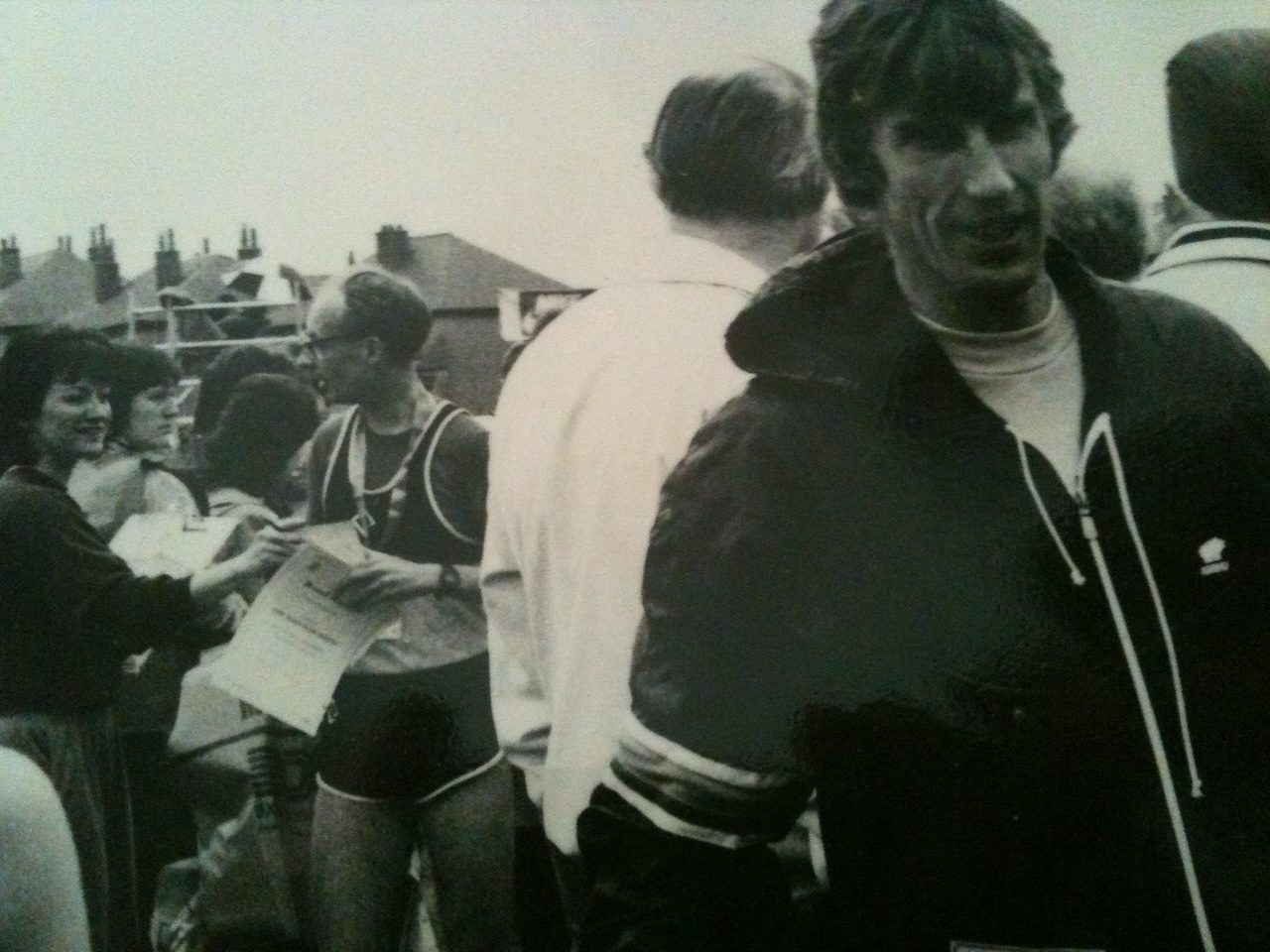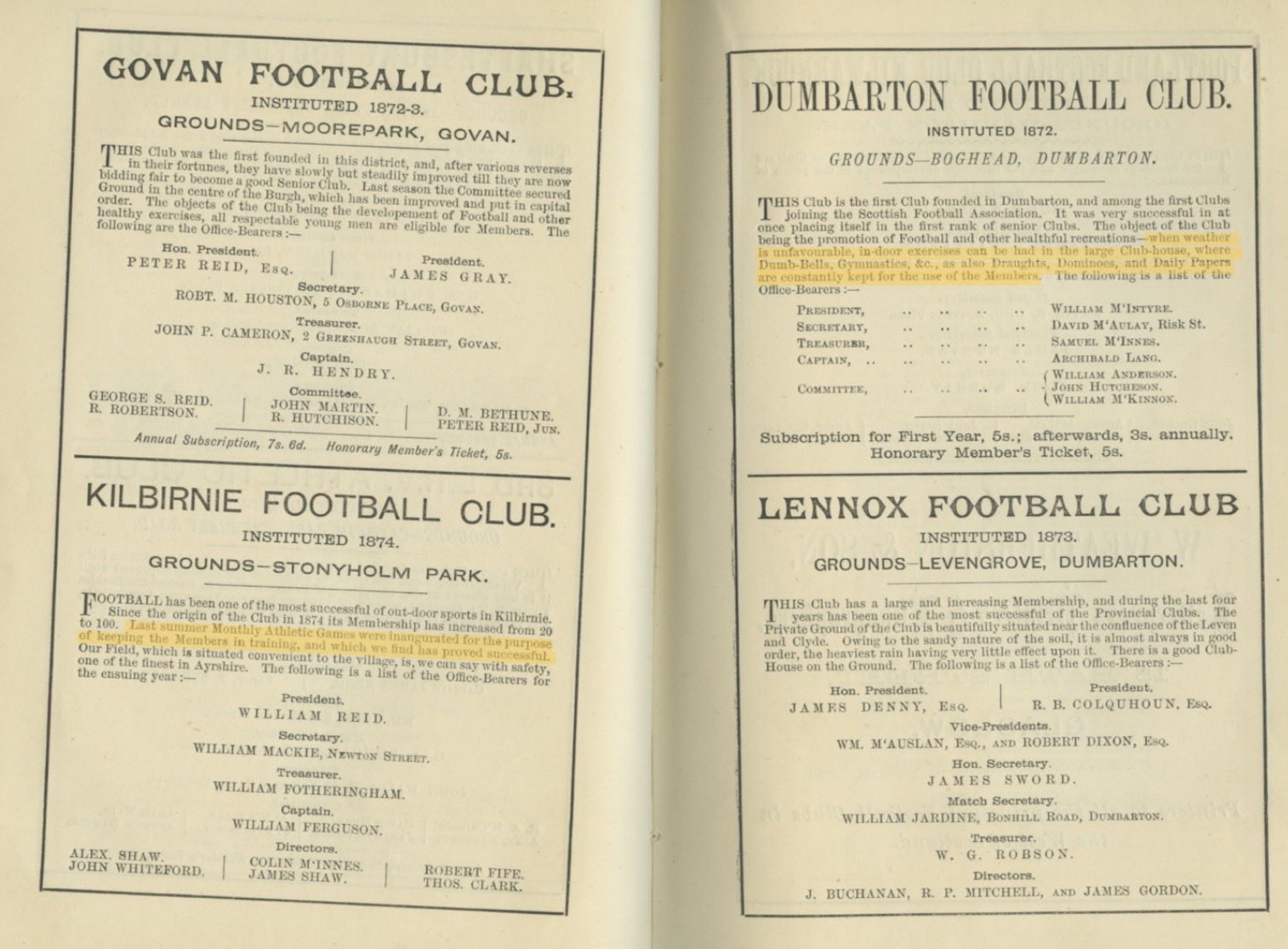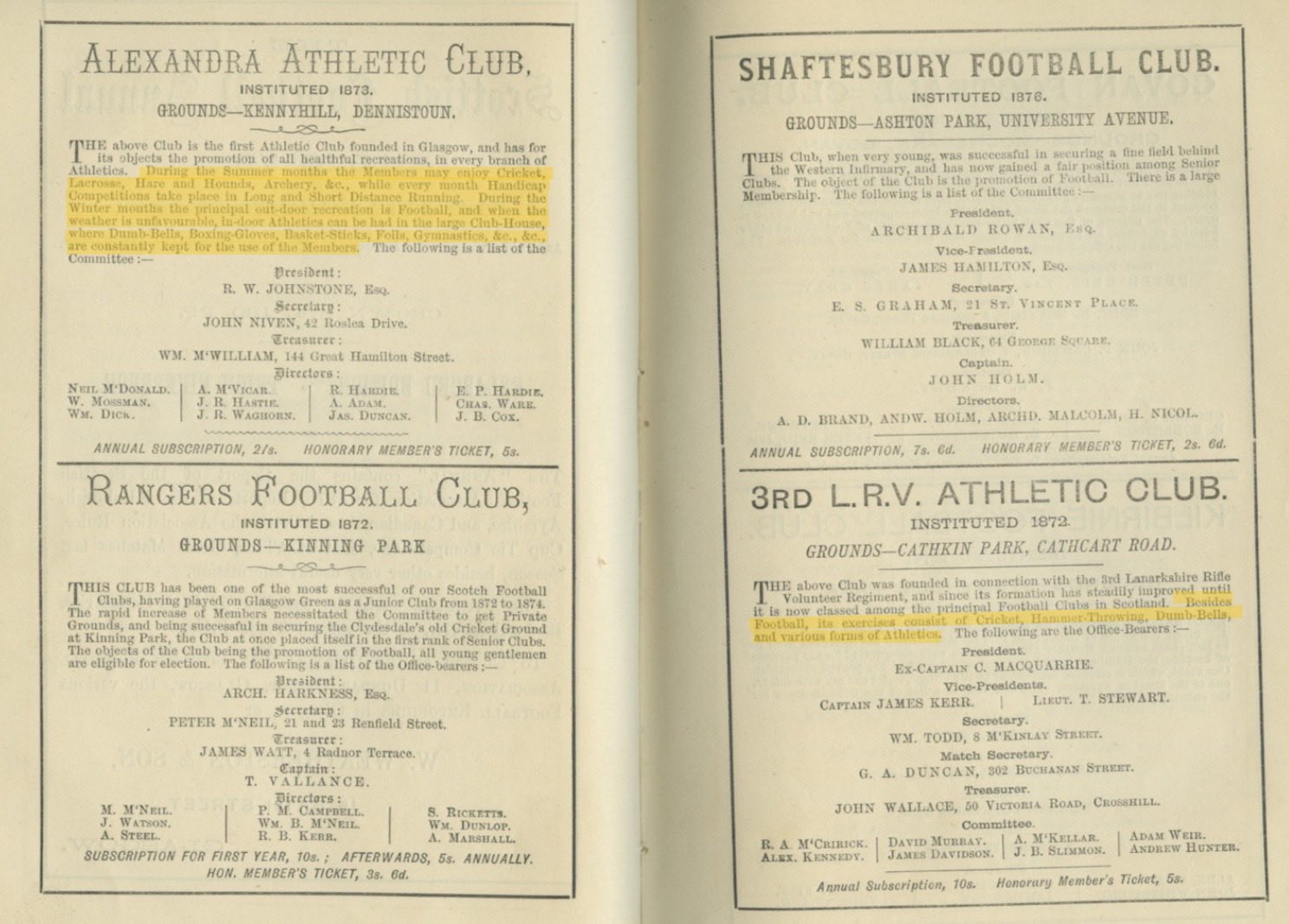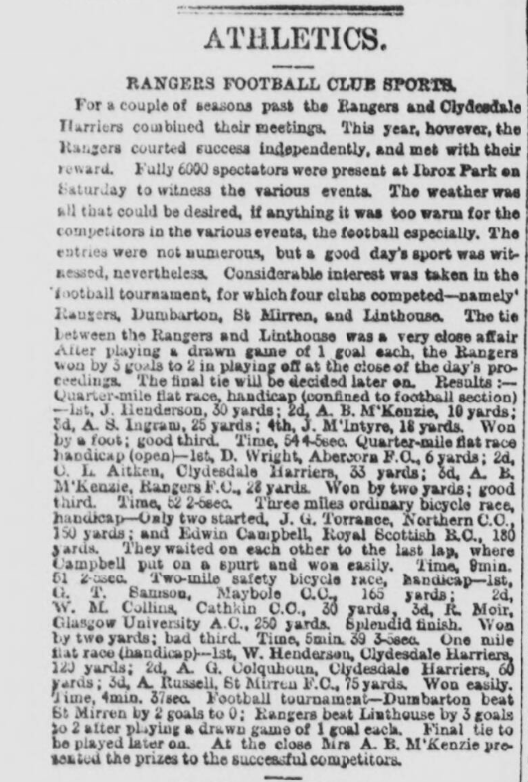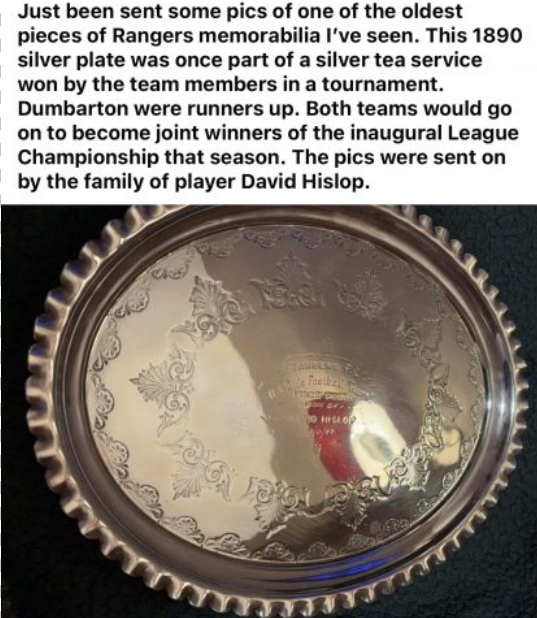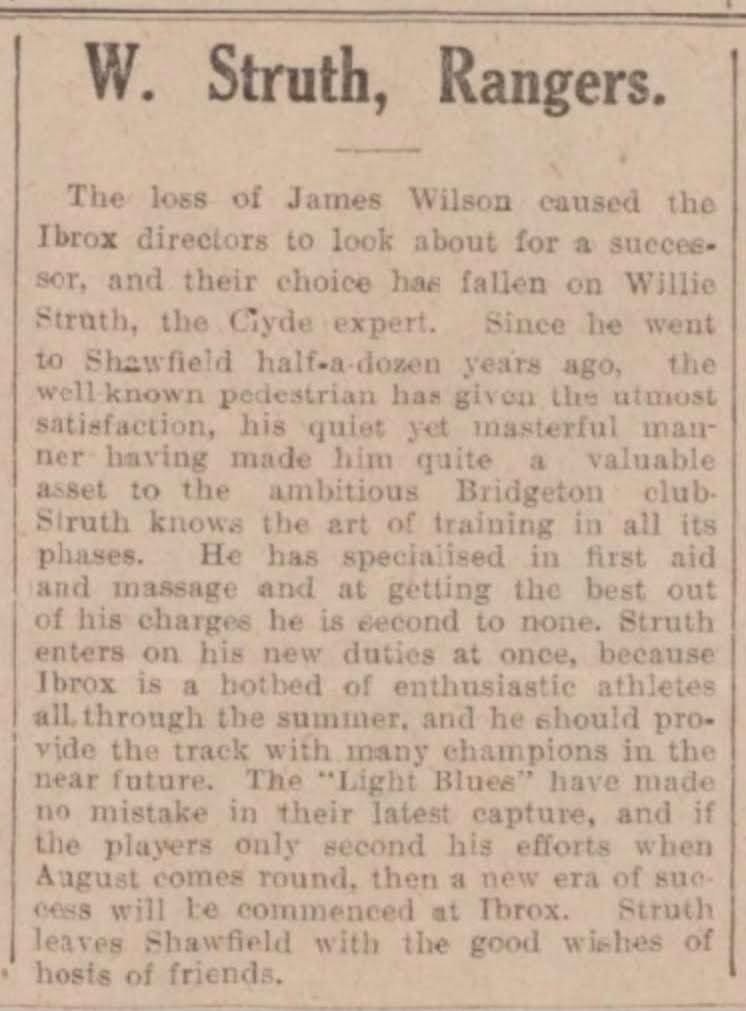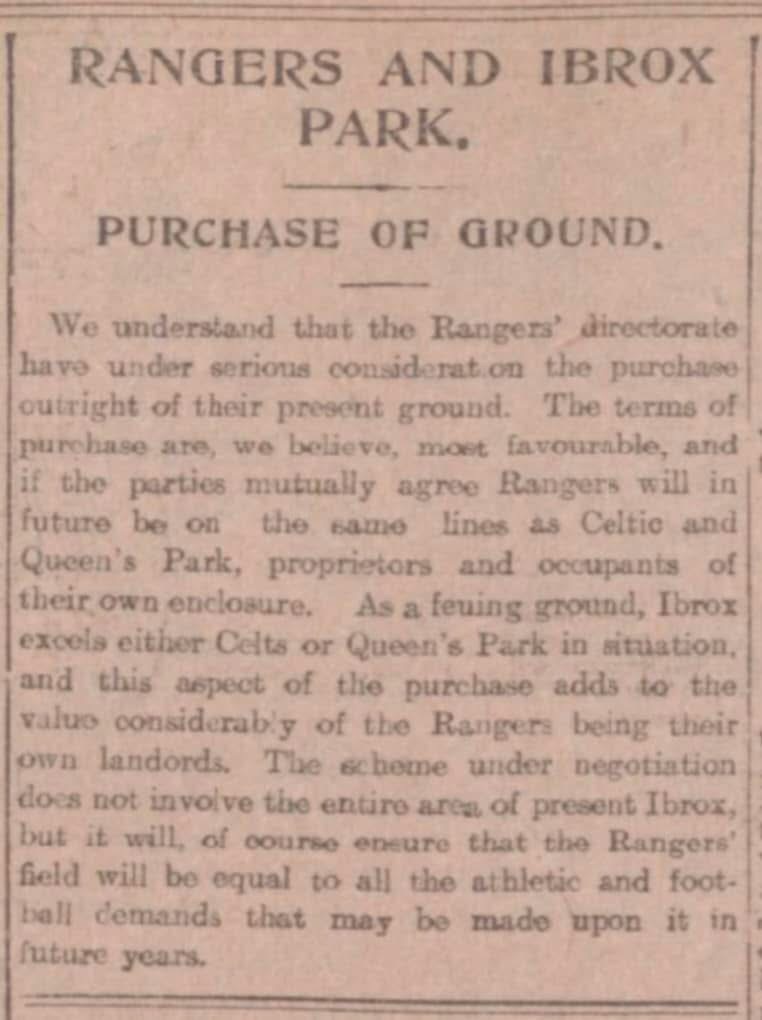Time for more from Hugh Barrow’s collection of photographs, cuttings and other memorabilia. It’s a quite remarkable collection of items covering the entire history of endurance running people, events and coverage of the sport in general. Let’s start this page with one of the man himself from the “Kirkintilloch Herald” after one of the early Luddon Strathkelvin Half Marathon races with Brian McAusland in the background who would later organise the British Milers Club Street Mile races held while the 13 miler was taking place.
We follow with three extracts from the Scottish Football Annual of 1878/9: on the Rangers FC information, note the joining fees. Yes, you could join the Rangers as you could any other sports club.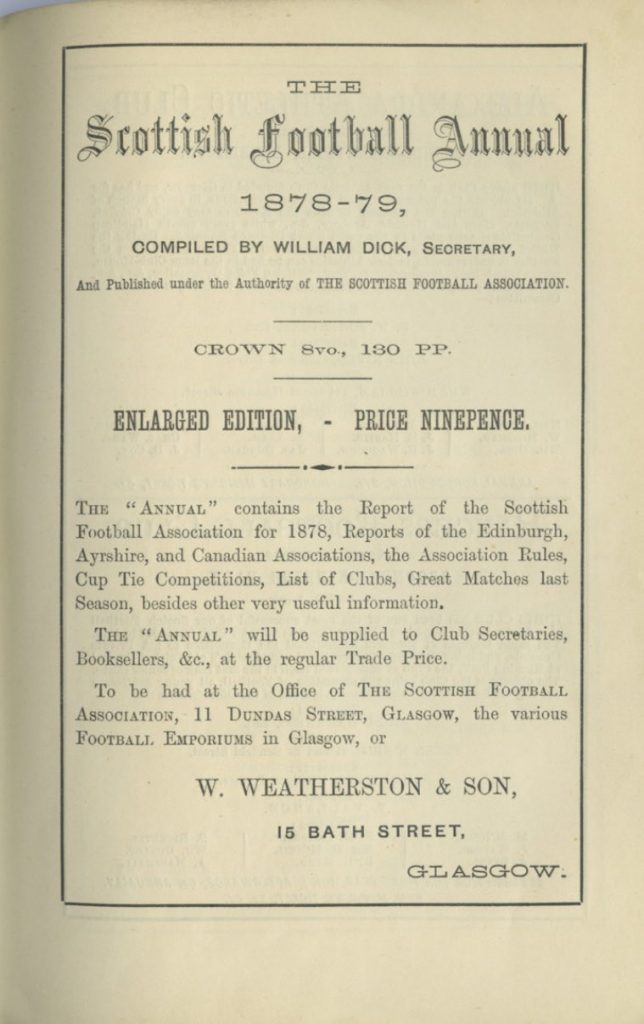
At the big football matches the invalid cars were parked in front of the spectators so that the owners could see the action without the difficulty of leaving their cars and without the cars causing difficulty for the other spectators too. Occasionally there were some at at bg athletics meetings but not in the numbers as shown below.
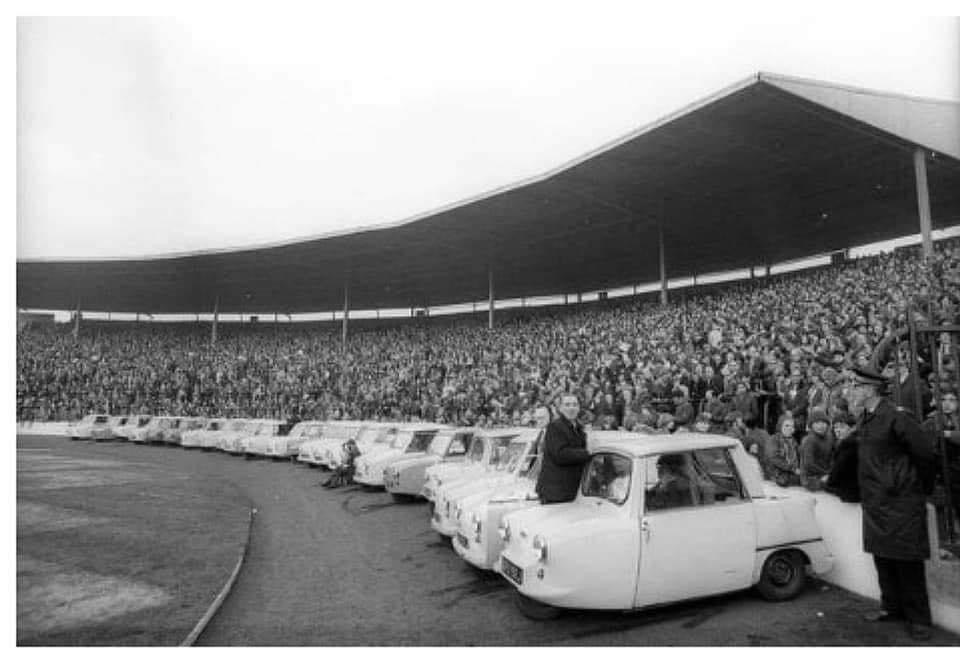 The Olympics have always been seen as the prime example of friendship through sport, of all sports engaging together in fraternal spirits. Read this extract:
The Olympics have always been seen as the prime example of friendship through sport, of all sports engaging together in fraternal spirits. Read this extract:
From the archive: Olympic Games are a threat to world peace On this day 100 years ago Monday July 22 2024, 12.01am, The Times From The Times: July 22, 1924 The message we publish today on the subject of the Olympic Games was evidently written under a profound sense of disappointment. Even those who went to Paris most full of hope are completely disheartened. In the opinion of our special correspondent, the Games have shown that the world is not yet ripe for the ideal which was the object of their revival — creating a brotherhood of sport to reflect the improvement of international relations. The experiences of the present Olympiad have confirmed the long-felt misgiving that the tendency of these Games is to inflame international animosities rather than to allay them. Both the actions of individual competitors and the behaviour of spectators have given rise to “disagreeable incidents” of a provocative and volcanic character. Even the judging has not been free from reproach. In a boxing match last week one of these “incidents” was so flagrantly unsportsmanlike, and the verdict of the judges so questionable, that it was agreed that unless the decision was reversed all the English-speaking contestants, including the Americans, would withdraw in a body. Yesterday the British Olympic Committee found it necessary to take more decided action. The Olympic boxing came to an end amid scenes of such disorder that they have notified the International Committee that British boxers will not compete at future Olympic meetings. Shameful disorder, storms of abuse, free fights, and the drowning of National Anthems by shouting and booing are not conducive to Olympic calm. Disturbances of this kind, with open expressions of national hostility, could end in worse trouble than the duel which it is feared may take place after a quarrel between a Hungarian and an Italian fencer. The peace of the world is too precious to justify any risk of its being sacrificed on the altar of international sport. Noting the loss of self-control to which national partisanship can give rise, French newspapers suggest that the Olympic Games do more harm than good in international relations. Our correspondent says that no one will feel justified in again appealing to the public to support the sending of a full team to another Olympiad, and that the death-knell of the Games has, in fact, been sounded .
A bit grim and, thankfully, wrong. On a happier note, the Rangers Sports are always interesting.
Now, one of the oldest known pieces of Rangers memorabilia, photograph and info received by Hugh from David Mason, who says:
After the death of William Wilton in 1914, Bill Struth was appointed manager of the Rangers and there was as expected a lot of comment in the Press – this is a simple factual statement that accompanied the appointment.
Ibrox was purchased in 1904 and the comments below on the respective merits of Ibrox, Celtic Park and Queens Park ground are interesting.
More to come.
